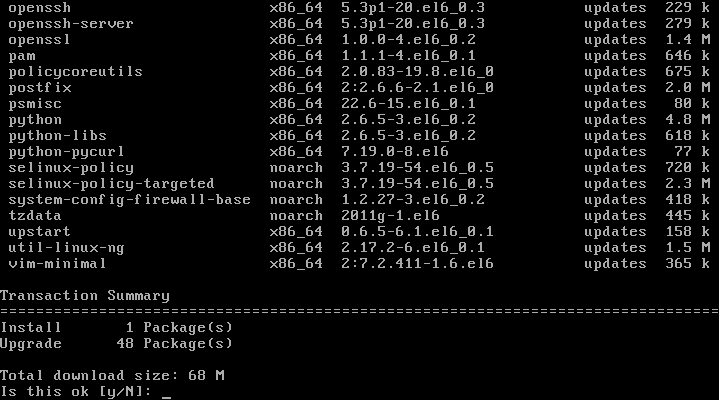
Find out more information here: EPEL Homepage

– Packages that are being tested prior to release, you should not use this repository except for a specific reason. These packages have undergone some basic testing, should track upstream release versions fairly closely and will never replace any core distribution package. – Packages built and maintained by the Centos developers that add functionality to the core distribution. – Packages that make up the Cluster Suite and Global File System. You should understand the implications of enabling and using packages from this repository. These packages might replace rpm’s included in the core distribution. – Packages contributed by Centos developers and the users. These packages have not been tested by the Centos developers, and may not track upstream version releases very closely. – Packages contributed by the Centos Users, which do not overlap with any of the core Distribution packages. Packages contained in the addons repository should be considered essentially a part of the core distribution, but may not be in the upstream Package tree.

– Contains packages required in order to build the main Distribution or packages produced by SRPMS built in the main Distribution, but not included in the main Red Hat package tree (mysql-server in Centos-3.x falls into this category). This will be Security, BugFix, or Enhancements to the software. – Updated packages to released after the Centos ISOs.


– The packages that make up Centos, as it is released on the ISOs. The configuration files for these repositories can be found on the system here: /etc//*.repo Official Centos Repos You may download and install software from the Centos Project network of repositories on as many systems as desired. All of the software provided by the Centos Project is open source software. You may use a single command to update all system software, or search for new software by specifying criteria. This method frees you from having to manually find and install new applications or updates. Software management utilities such as yum automatically locate and obtain the correct RPM packages from these repositories.


 0 kommentar(er)
0 kommentar(er)
